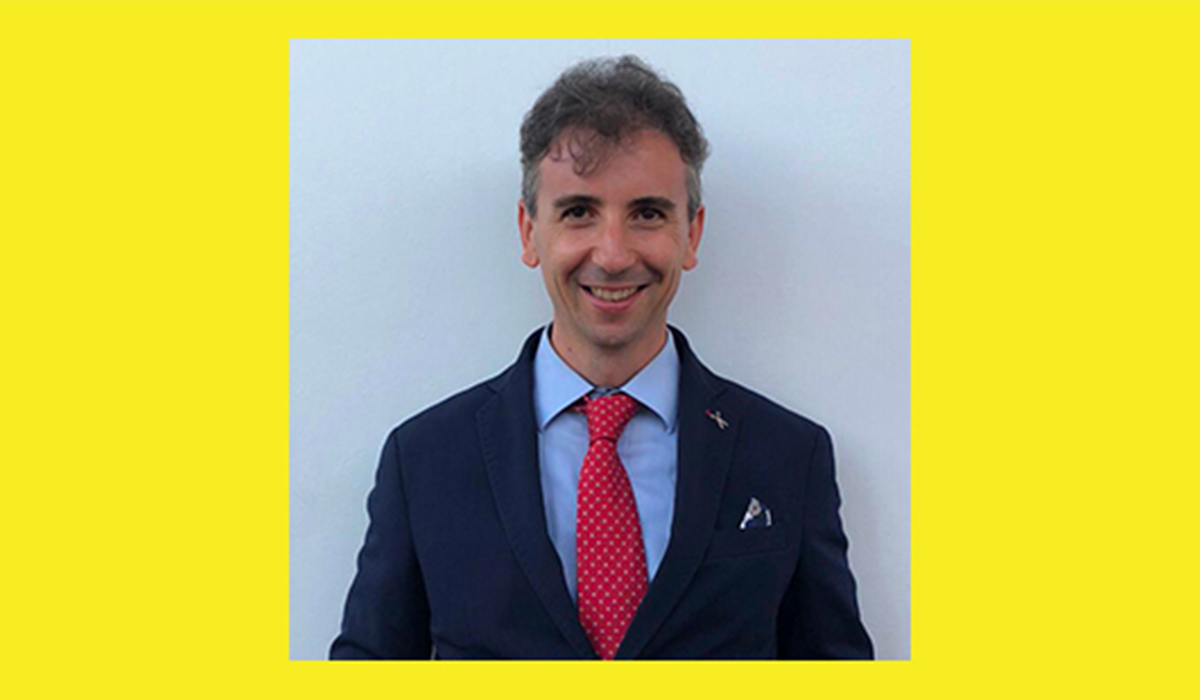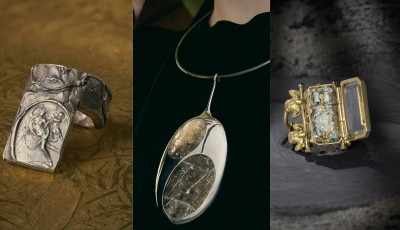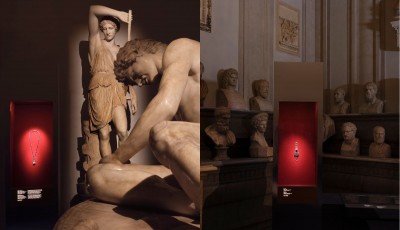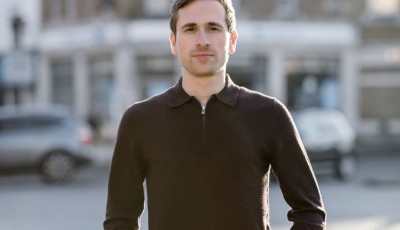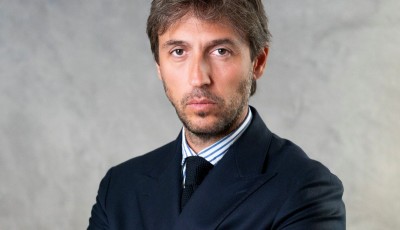THE TALK: Invest in the Customer of Tomorrow
Marco Chiumento, President of Novagum, tells us how his hyper-technological company is facing this emergency with a view to extreme renewal. Amid on-line jewelry sketching courses and Testing Lab
Let’s start from the base: are you thinking about any specific initiatives to guarantee business continuity?
We have launched on-line sketching courses for those who want to learn or improve hand-drawn design techniques. Hand-drawn designing is more exciting than 3D and the courses offered by Novagum are taken by none other than Beatriz Biagi, the internationally renowned expert. They mirror how we have always aimed at offering the most qualified and qualifying services possible. We thought that these weeks of enforced stoppage could be an ideal chance to seize for those already in the sector who usually never have time to look more closely at a certain aspect of the industry, and perhaps even discover how artistically high our profession, which is so deeply linked to technology, can be, and vice versa.
Could systemization be a strong point now more than ever?
Synergies between small-medium sized companies are harder to create than between large companies because so many ways of thinking and different personalities have to come to agreement. I think that the first things to overcome are individualism and exasperating nationalism. A bit of pride is alright but it cannot verge on the irrational. This extreme experience that we are undergoing should have made us realize that there is only one playing field these days. We have to learn to be a team among all the world’s jewelers. How? For example, for years, we at Novagum have been organizing free training courses in Mexico to transmit our skills to new businesses. From a social point of view, it is important to divulge this knowledge gained from the work of generations, especially in countries where poverty is high and which would otherwise not be able to bridge such a large gap and set up a company. I personally hold those courses. I have more than 20 years’ experience as a jeweler so I manage to be two figures in one - an artisan and a technology expert. In this logic of reciprocal exchange, I have seen new communities of small businessmen develop over the years. It is hugely satisfying even if, obviously, it is not all done just for a social purpose, it also helps educate new future customers.
Where do you think the most problems might lie on emerging from this crisis? How much depends on the various markets and on individual behavior?
The market is just one aspect. Each of us will have to accept that we are facing a great change because, even after returning to normality, we will need to think with a different mentality which, for example, will also lead to a different type of sustainability. The starting point will be putting into focus sustainable growth systems thanks to a new culture of saving. We are not speaking of social questions but of something more complex. As an entrepreneur, I have to look at the entire supply chain. Where does the gold I use come from? Are the diamonds “blood-stained”? These are the questions that, for some time now, we should all be asking ourselves. At Novagum, we have been asking them for a long time, but rules and mutual guidelines are needed. This crisis could, therefore, provide the opportunity for a new beginning, for laying the foundations of a future virtuous path. Sustainability must not and cannot be considered as an extra cost any longer but rather as a source of greater strength and competitiveness for a brand. Very briefly, when we think of a green product, from today and into the future, it must mean buying better, not buying less and nothing else.
We have launched on-line sketching courses for those who want to learn or improve hand-drawn design techniques. Hand-drawn designing is more exciting than 3D and the courses offered by Novagum are taken by none other than Beatriz Biagi, the internationally renowned expert. They mirror how we have always aimed at offering the most qualified and qualifying services possible. We thought that these weeks of enforced stoppage could be an ideal chance to seize for those already in the sector who usually never have time to look more closely at a certain aspect of the industry, and perhaps even discover how artistically high our profession, which is so deeply linked to technology, can be, and vice versa.
Could systemization be a strong point now more than ever?
Synergies between small-medium sized companies are harder to create than between large companies because so many ways of thinking and different personalities have to come to agreement. I think that the first things to overcome are individualism and exasperating nationalism. A bit of pride is alright but it cannot verge on the irrational. This extreme experience that we are undergoing should have made us realize that there is only one playing field these days. We have to learn to be a team among all the world’s jewelers. How? For example, for years, we at Novagum have been organizing free training courses in Mexico to transmit our skills to new businesses. From a social point of view, it is important to divulge this knowledge gained from the work of generations, especially in countries where poverty is high and which would otherwise not be able to bridge such a large gap and set up a company. I personally hold those courses. I have more than 20 years’ experience as a jeweler so I manage to be two figures in one - an artisan and a technology expert. In this logic of reciprocal exchange, I have seen new communities of small businessmen develop over the years. It is hugely satisfying even if, obviously, it is not all done just for a social purpose, it also helps educate new future customers.
Where do you think the most problems might lie on emerging from this crisis? How much depends on the various markets and on individual behavior?
The market is just one aspect. Each of us will have to accept that we are facing a great change because, even after returning to normality, we will need to think with a different mentality which, for example, will also lead to a different type of sustainability. The starting point will be putting into focus sustainable growth systems thanks to a new culture of saving. We are not speaking of social questions but of something more complex. As an entrepreneur, I have to look at the entire supply chain. Where does the gold I use come from? Are the diamonds “blood-stained”? These are the questions that, for some time now, we should all be asking ourselves. At Novagum, we have been asking them for a long time, but rules and mutual guidelines are needed. This crisis could, therefore, provide the opportunity for a new beginning, for laying the foundations of a future virtuous path. Sustainability must not and cannot be considered as an extra cost any longer but rather as a source of greater strength and competitiveness for a brand. Very briefly, when we think of a green product, from today and into the future, it must mean buying better, not buying less and nothing else.
Can the Cura Italia decree really help companies?
For those who don’t change their way of working, drawing on more debt only means shifting the problem forward and increasing debts. Obtaining a loan from the State can be of immediate help but it will be harmful in the future. If a company is already in difficulties, it will not be able to pay back its old debts let alone any new ones agreed upon, thus, sooner or later, it will find itself back at square one. Unfortunately, it is a drastic but extremely realistic vision of what may soon happen. Although ours is a family-run business, it is a very solid one that has always gone forward on its own capacities and resources and which, even now, is resorting minimally to corporate fenders. Exactly in view of possible international crises, for some time now we have been diversifying our goods categories, developing specific product lines for jewelry and for the automotive industry, two worlds that are not subject to the same repercussions. That is why we are counting on starting up again soon. The mechanical vibro-polishing sector, for example, where we have been collaborating for years, has never stopped and this has well-sustained the slowdown in our jewelry division. The serenity we are enjoying, however, is not just “lucky”, it is the result of willful and well-prepared planting that we have been carrying out over the years.
How have you been taking advantage of these “standstill” days?
Let’s say that we are producing projects. Distribution has stopped, also because our customers, both in Italy and abroad, are closed, so we are devoting our time in search of new customers, new products and are focusing on a highly important service: the Testing Lab. Customers send us samples, we do the relative laboratory testing, the customer weighs up the advantages and disadvantages of certain processing methods and, together, we decide on new finishings. Nobody generally has much time to dedicate to these processes but, during this lockdown phase, we have all been busy finalizing what could be a successful product for tomorrow. Incentives are resulting from this current situation. Let’s take, for example, the increase in the price of gold: if, up until recently, gold cost 25 € a gram, and today it costs 50 €, there are only two possible solutions: either you reduce production or you reduce the weight of single items. And technology must accommodate these production requirements. It can be done with 3D technology, but, as a consequence, machines must be designed for the right electro-polishing to fit the case and satisfy these new requests. And we must be ready.
How has this emergency changed your way of doing business? What are you most worried about?
Making a comparison, in the same way as when we went from using a fax machine to using the Internet. Because the labor market has evolved considerably during this time and a change is happening that will accompany us in the medium to long term. For our part, we provided our customers with immediate and maximum support by devising an internal safety protocol, like, for example, putting the goods, packaging, plastic materials and boxes, both those in transit and outbound, into quarantine for a week. With so much information and the few certainties that we have had during this time, for caution’s sake, that is what we did.
In terms of “after”, what worries me is that re-opening will not be simultaneous on a global scale. Italian companies were the first to close and we will also be the first to re-open, finding the local market to be the “only” one open. If we take Novagum as an example, besides Mexico, we are especially strong on the Asian and Southern Indonesian market and both these areas closed 2/3 weeks after us. This means a total standstill period of almost three months.
For those who don’t change their way of working, drawing on more debt only means shifting the problem forward and increasing debts. Obtaining a loan from the State can be of immediate help but it will be harmful in the future. If a company is already in difficulties, it will not be able to pay back its old debts let alone any new ones agreed upon, thus, sooner or later, it will find itself back at square one. Unfortunately, it is a drastic but extremely realistic vision of what may soon happen. Although ours is a family-run business, it is a very solid one that has always gone forward on its own capacities and resources and which, even now, is resorting minimally to corporate fenders. Exactly in view of possible international crises, for some time now we have been diversifying our goods categories, developing specific product lines for jewelry and for the automotive industry, two worlds that are not subject to the same repercussions. That is why we are counting on starting up again soon. The mechanical vibro-polishing sector, for example, where we have been collaborating for years, has never stopped and this has well-sustained the slowdown in our jewelry division. The serenity we are enjoying, however, is not just “lucky”, it is the result of willful and well-prepared planting that we have been carrying out over the years.
How have you been taking advantage of these “standstill” days?
Let’s say that we are producing projects. Distribution has stopped, also because our customers, both in Italy and abroad, are closed, so we are devoting our time in search of new customers, new products and are focusing on a highly important service: the Testing Lab. Customers send us samples, we do the relative laboratory testing, the customer weighs up the advantages and disadvantages of certain processing methods and, together, we decide on new finishings. Nobody generally has much time to dedicate to these processes but, during this lockdown phase, we have all been busy finalizing what could be a successful product for tomorrow. Incentives are resulting from this current situation. Let’s take, for example, the increase in the price of gold: if, up until recently, gold cost 25 € a gram, and today it costs 50 €, there are only two possible solutions: either you reduce production or you reduce the weight of single items. And technology must accommodate these production requirements. It can be done with 3D technology, but, as a consequence, machines must be designed for the right electro-polishing to fit the case and satisfy these new requests. And we must be ready.
How has this emergency changed your way of doing business? What are you most worried about?
Making a comparison, in the same way as when we went from using a fax machine to using the Internet. Because the labor market has evolved considerably during this time and a change is happening that will accompany us in the medium to long term. For our part, we provided our customers with immediate and maximum support by devising an internal safety protocol, like, for example, putting the goods, packaging, plastic materials and boxes, both those in transit and outbound, into quarantine for a week. With so much information and the few certainties that we have had during this time, for caution’s sake, that is what we did.
In terms of “after”, what worries me is that re-opening will not be simultaneous on a global scale. Italian companies were the first to close and we will also be the first to re-open, finding the local market to be the “only” one open. If we take Novagum as an example, besides Mexico, we are especially strong on the Asian and Southern Indonesian market and both these areas closed 2/3 weeks after us. This means a total standstill period of almost three months.


